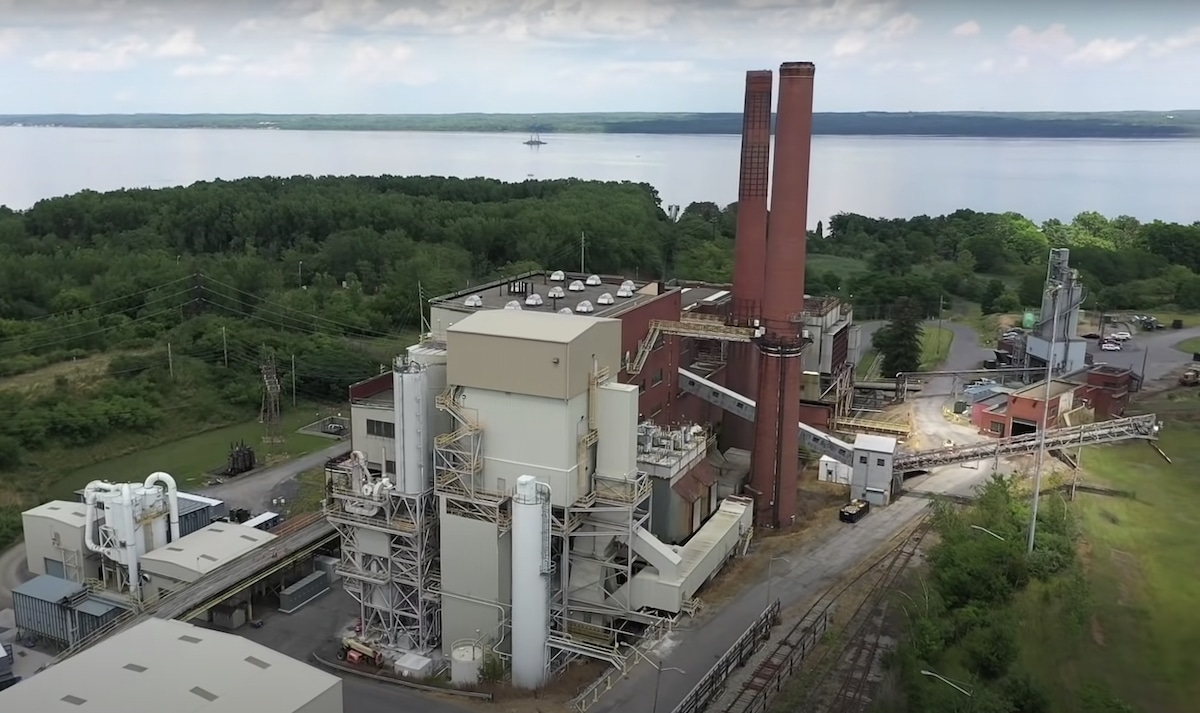
Energy-Hungry Bitcoin is Bringing Old Fossil Fuel Plants Back on Line

One of the biggest questions surrounding the cryptocurrency boom is whether or not the climate can afford such an energy-intensive trend. Much of this concern has focused on Bitcoin, which has a current annual energy consumption of 147.67 terawatt hours, more than Norway and Ukraine, according to the Cambridge Bitcoin Electricity Consumption Index. And the worry seems to be justified by the fact that Bitcoin has a habit of revitalizing aging fossil-fuel plants.
The latest report comes from The Guardian, which profiled an aging coal plant in Hardin, Montana that was brought back from the brink after Bitcoin mining company Marathon acquired its electricity in late 2020.
“I was horrified to see it all happen, it was a terrible turn of events,” Montana Environmental Information Center co-director Anne Hedges told The Guardian. “This isn’t helping old ladies from freezing to death, it’s to enrich a few people while destroying our climate for all of us. If you’re concerned about climate change you should have nothing to do with cryptocurrency, it’s a disaster for the climate.”
The 115-megawatt plant was first earmarked for closure in 2018 but managed to survive barely, running just 46 days in 2020.
“We were just waiting for this thing to die,” Hedges said. “They were struggling and looking to close. It was on the brink. And then this cryptocurrency company came along.”
Marathon reached a deal to be the only recipient of the plant’s power and set up a data center on 20 acres of land near the plant. Bitcoin mining is so energy intensive because it involves solving complicated computer equations to release new coins. As the supply of Bitcoins dwindles, the equations become more difficult and the computing power needed to solve them increases. This process saw the plant fire 236 days in the first nine months of 2021 and release 187,000 tons of carbon dioxide during the second quarter of the same year. The plant’s greenhouse gas emissions increased by more than 5,000 percent compared to the same period in 2020, when the plant appeared to be on its last legs.
This isn’t the first time that Bitcoin mining has been linked to the restoration of an aging power plant. In 2017, Greenidge Generation converted a shuttered coal plant in upstate New York into a natural gas plant and began using it to generate electricity, AP news reported. Then it started using some of that electricity to mine Bitcoin. As of October of 2021, it was using 44 megawatts to power 15,300 computer servers, power that could otherwise have fueled more than 35,000 homes.
Unlike Marathon, Greenidge Generation did not purchase the plant just to mine Bitcoin. And it still sells power to the grid as well. However, environmentalists at the time thought that running a mining operation out of a shuttered coal plant set a bad precedent, and they asked the state not to renew the plant’s air quality permit.
“The current state of our climate demands action on cryptocurrency mining,” Liz Moran of Earthjustice told AP News at the time. “We are jeopardizing the state’s abilities to meet our climate goals, and we set the stage for the rest of the country as a result.”
Another example is the Scrubgrass power plant that burns coal waste in Pittsburgh, Pennsylvania, Ohio River Valley Institute research fellow Eric de Place observed. This plant was also on its last legs when it was bought by Stronghold Digital Mining. It now generates 371,000 tons of carbon dioxide each year, the equivalent of adding 80,000 cars to the road.
“In theory, Bitcoin miners could build or buy solar or wind energy facilities to power their operations,” de Place wrote. “But miners hunting for quick sales at bargain basement prices are often turning to stranded fossil fuel assets.”
As one possible solution, he pointed to a bill currently in committee in the New York State Senate that would ban the use of fossil fuels for Bitcoin mining.
“This is the first bill in the country that would put any regulations on mining,” Assemblymember Anna Kelles (D-Ithaca), who sponsored the measure in the New York State Assembly, told POLITICO of the new bill. \

 233k
233k  41k
41k  Subscribe
Subscribe 